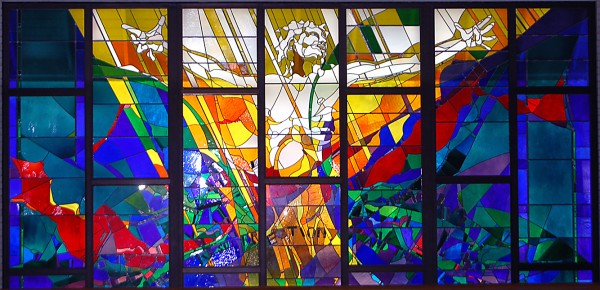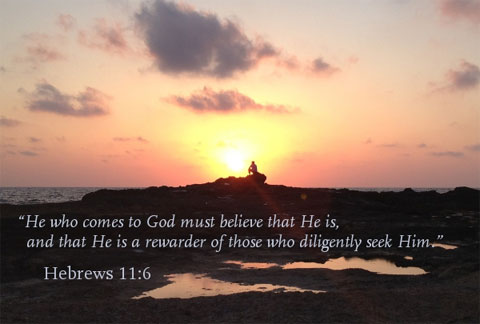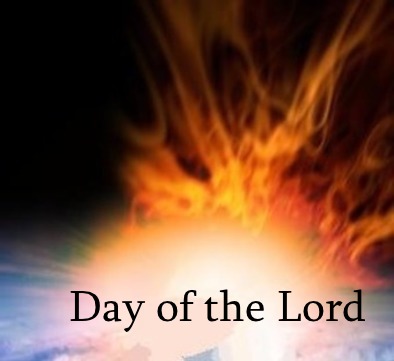Behold, the LORD will come with fire, and with his chariots like a whirlwind, to render his anger with fury, and his rebuke with flames of fire.
With hurricane Isaiah (Isaias in Greek) bearing down on the U.S. it’s a good time to examine the LORD’s foretold coming as a voice from the whirlwind. The word “whirlwind” above, from Isaiah 66:15, is the Hebrew word cuwphah, which is from the word cuwph, meaning “to snatch away, i.e. terminate.” This root word appears in several identical forms, all meaning to come to an end or conclusion. In the same context, one of its forms means papyrus reed, as in what is found at the edge of the Red Sea, which cuwphah is one time rendered. When it is, in Numbers 21:14, it’s referring to when God’s people passed through the sea on dry ground, and reaching the reeds and knew they were near the expected end (in the Promised Land). This conclusion was followed by the water overflowing and destroying the enemies who ignorantly followed, which is the idea highlighted in its mention. It follows the pattern of the son of man lifted up, as the LORD says, in John 3:14, must happen so that He will draw all men to Himself. It is the moment in which we now find ourselves.
Luke 12
49 I am come to send fire on the earth; and what will I, if it be already kindled?
50 But I have a baptism to be baptized with; and how am I straitened till it be accomplished!
51 Suppose you that I am come to give peace on earth? I tell you, Nay; but rather division:
52 For from henceforth there shall be five in one house divided, three against two, and two against three.
53 The father shall be divided against the son, and the son against the father; the mother against the daughter, and the daughter against the mother; the mother in law against her daughter in law, and the daughter in law against her mother in law.
54 And he said also to the people, When you see a cloud rise out of the west, straightway you say, There comes a shower; and so it is.
55 And when you see the south wind blow, you say, There will be heat; and it comes to pass.
56 You hypocrites, you can discern the face of the sky and of the earth; but how is it that you do not discern this time?
57 Yea, and why even of yourselves judge you not what is right?
Numbers 21
4 And they journeyed from mount Hor [the mountain where Aaron died, his name meaning light giver, and telling of when understanding left the priesthood] by the way of the Red [cuwph – the end] sea, to compass the land of Edom [where the enemies are mixed among us]: and the soul of the people was much discouraged because of the way.
5 And the people spoke against God, and against Moses, Wherefore have you brought us up out of Egypt to die in the wilderness? for there is no bread, neither is there any water; and our soul loathes this light bread [this word of God as manna – which the people without understanding are ignorant that it is the word from the mouth of God, by which man does live].
6 And the LORD sent fiery serpents among the people [misleader mixed among us, whose venom is in their mouth], and they bit the people; and much people of Israel died [from following the misleading advice of the enemies].
7 Therefore the people came to Moses, and said, We have sinned, for we have spoken against the LORD, and against you; pray unto the LORD, that he take away the serpents from us. And Moses prayed for the people.
8 And the LORD said unto Moses, Make you a fiery [see Luke 12:49 above] serpent, and set it upon a pole [nec – a banner/standard the people will see and know the way]: and it shall come to pass, that every one that is bitten, when he looks upon it, shall live.
9 And Moses made a serpent of brass, and put it upon a pole [nec], and it came to pass, that if a serpent had bitten any man, when he beheld the serpent of brass, he lived.
10 And the children of Israel set forward, and pitched in Oboth [water-skins – as familiar spirts – where the words of the known dead are heard calling man toward death].
11 And they journeyed from Oboth [they left the words of death], and pitched at Ijeabarim [where all who passed by could see the ruin caused by the corrupt and ignorant words, the venom of serpents], in the wilderness which is before Moab [as these men’s word are seen as the gates of hell, and passing through them we enter the light, understanding the moment and the new day], toward the sun-rising.
12 From thence they removed, and pitched in the valley of Zared [the place of exuberant growth – the advance of God’s people into his next unlimited state/age].
13 From thence they removed, and pitched on the other side of Arnon [brawling river – the place of the final battle when the waters overcome and finish the enemies], which is in the wilderness that comes out of the coasts of the Amorites [those speaking and exalting their word above this word of God]: for Arnon is the border of Moab [these are the gates of hell we must pass through], between Moab and the Amorites.
14 Wherefore it is said in the book of the wars of the LORD, What he did in the Red sea [cuwphah – when we reach the expected end], and in the brooks of Arnon [when these men’s words and God’s word clash and these men are destroyed],
15 And at the stream of the brooks that goes down to the dwelling of Ar [the place of this fountain of the LORD’s word, which breaks down the gate holding God’s people in hell], and lies upon the border of Moab.
16 And from thence they went to Beer [and the people went to the well, the fountain of God here springing up]: that is the well whereof the LORD spoke unto Moses, Gather the people together, and I will give them water [this word of God, which I have reserved to myself, for the salvation of God’s people].
17 Then Israel sang this song, Spring up [be lifted up, O Word of God], O well; sing you unto it:
John 3
11 Truly, truly, I say unto you, We speak that we do know, and testify that we have seen; and you receive not our witness.
12 If I have told you earthly things, and you believe not, how shall you believe, if I tell you of heavenly things?
13 And no man has ascended up to heaven, but he that came down from heaven, even the Son of man which is in heaven.
14 And as Moses lifted up the serpent in the wilderness, even so must the Son of man be lifted up:
15 That whosoever believes in him should not perish, but have eternal life.
16 For God so loved the world, that he gave his only begotten Son, that whosoever believes in him should not perish, but have everlasting life.
17 For God sent not his Son into the world to condemn the world; but that the world through him might be saved.
18 He that believes on him is not condemned: but he that believes not is condemned already, because he has not believed in the name of the only begotten Son of God.
19 And this is the condemnation [krisis – the moment of decision, the choice which determines each person’s future], that light [understanding] is come into the world, and men loved darkness [ignorance] rather than light, because their deeds were evil.
20 For every one that does evil hates the light [understanding, which is truth], neither comes to the light, lest his deeds should be reproved.
21 But he that does truth comes to the light, that his deeds may be made manifest, that they are wrought in God.
Isaiah 66
5 Hear the word of the LORD, you that tremble at his word; Your brethren that hated you, that cast you out for my name’s sake, said, Let the LORD be glorified: but he shall appear to your joy, and they shall be ashamed.
6 A voice of noise from the city, a voice from the temple, a voice of the LORD that renders recompense [repayment] to his enemies.
7 Before she travailed, she brought forth; before her pain came, she was delivered of a man child.
8 Who has heard such a thing? who has seen such things? Shall the earth be made to bring forth in one day? or shall a nation be born at once? for as soon as Zion travailed, she brought forth her children.
9 Shall I bring to the birth, and not cause to bring forth? says the LORD: shall I cause to bring forth, and shut the womb? says your God.
10 Rejoice you with Jerusalem, and be glad with her, all you that love her: rejoice for joy with her, all you that mourn for her:
11 That you may suck, and be satisfied with the breasts of her consolations; that you may milk out, and be delighted with the abundance of her glory.
12 For thus says the LORD, Behold, I will extend peace to her like a river, and the glory of the Gentiles like a flowing stream: then shall you suck, you shall be borne upon her sides, and be dandled upon her knees.
13 As one whom his mother comforts, so will I comfort you; and you shall be comforted in Jerusalem.
14 And when you see this, your heart shall rejoice, and your bones shall flourish like an herb: and the hand of the LORD shall be known toward his servants, and his indignation toward his enemies.
15 For, behold, the LORD will come with fire, and with his chariots like a whirlwind [cuwphah – bring the expected end to God’s people and the destruction of their enemies], to render his anger with fury, and his rebuke with flames of fire [see Luke 12:49 and Numbers 21:8 above].
16 For by fire and by his sword will the LORD plead with all flesh: and the slain of the LORD shall be many.
17 They that sanctify themselves, and purify themselves in the gardens behind one tree in the midst, eating swine’s flesh, and the abomination, and the mouse, [all those who’ve replaced the holy with the abominations men have created] shall be consumed together, says the LORD.
18 For I know their works and their thoughts: it shall come, that I will gather all nations and tongues; and they shall come, and see my glory.
19 And I will set a sign among them, and I will send those that escape of them unto the nations, to Tarshish [those who run from the fight and their vows], Pul, and Lud, that draw the bow, to Tubal, and Javan [these four names tell of those distinguished as those who have been fighting with the LORD, as the corruption in their words is brought to the surface], to the isles afar off, that have not heard my fame, neither have seen my glory; and they shall declare my glory among the Gentiles [those who don’t know Me].
20 And they shall bring all your brethren for an offering unto the LORD out of all nations upon horses, and in chariots, and in litters, and upon mules, and upon swift beasts, to my holy mountain Jerusalem, says the LORD, as the children of Israel bring an offering in a clean vessel into the house of the LORD.
21 And I will also take of them for priests and for Levites, says the LORD.
22 For as the new heavens and the new earth, which I will make [wherein dwells righteousness – right judgment], shall remain before me, says the LORD, so shall your seed and your name remain.
23 And it shall come to pass, that from one new moon to another, and from one Sabbath to another, shall all flesh come to worship before me, says the LORD.
24 And they shall go forth, and look upon the carcasses of the men that have transgressed against me: for their worm shall not die, neither shall their fire be quenched [in the fire of hell they will remain alive forever]; and they shall be an abhorring unto all flesh.
The “sign” the LORD will set among us, mentioned in verse 19 above, is the Hebrew word ‘owth, meaning “a signal (literally or figuratively), as a flag, beacon, monument, omen, prodigy, evidence, etc.” The LORD uses it to lead us to its appearing in Job 21:29, where it is rendered “token.” There it describes the sign of where the prince is and where wicked are: the wicked reserved for wrath and the prince declaring their ways to their face, which is the repayment for what they’ve done.
Job 21
22 Shall any teach God knowledge? seeing he judges those that are high.
23 One dies in his full strength, being wholly at ease and quiet.
24 His breasts are full of milk, and his bones are moistened with marrow.
25 And another dies in the bitterness of his soul, and never eats with pleasure.
26 They shall lie down alike in the dust, and the worms shall cover them.
27 Behold, I know your thoughts, and the devices which you wrongfully imagine against me.
28 For you say, Where is the house of the prince? and where are the dwelling places of the wicked?
29 Have you not asked them that go by the way? and do you not know their tokens [‘owth – signs placed among us],
30 That the wicked is reserved to the day of destruction? they shall be brought forth to the day of wrath.
31 Who shall declare his way to his face? and who shall repay him what he has done?
32 Yet shall he be brought to the grave, and shall remain in the tomb [forever among the dead].
33 The clods of the valley shall be sweet unto him, and every man shall draw after him, as there are innumerable before him.
34 How then comfort you me in vain, seeing in your answers there remains falsehood?
The Brown-Driver-Briggs Hebrew Lexicon says the word cuwphah means “honeycomb: overflowing.” As we’ve seen, honey is the product of a systematic arrangement of the honeycomb by the work of the bee (Deborah). It refers to the rightly ordered word of God as the strength of His people. The honey brings strength that returns to His body as He rises from the dead. See Isaiah 26:19 below.
Isaiah 26
1 In that day shall this song be sung in the land of Judah; We have a strong city; salvation will God appoint for walls and bulwarks.
2 Open you the gates, that the righteous nation which keeps the truth may enter in.
3 You will keep him in perfect peace, whose mind is stayed on you: because he trusts in you.
4 Trust you in the LORD for ever: for in the LORD Jehovah is everlasting strength:
5 For he brings down them that dwell on high; the lofty city, he lays it low; he lays it low, even to the ground; he brings it even to the dust.
6 The foot shall tread it down, even the feet of the poor, and the steps of the needy.
7 The way of the just is uprightness: you, most upright, do weigh the path of the just.
8 Yea, in the way of your judgments, O LORD, have we waited for you; the desire of our soul is to your name, and to the remembrance of you.
9 With my soul have I desired you in the night; yea, with my spirit within me will I seek you early: for when your judgments are in the earth, the inhabitants of the world will learn righteousness.
10 Let favor be shewed to the wicked, yet will he not learn righteousness: in the land of uprightness will he deal unjustly, and will not behold the majesty of the LORD.
11 LORD, when your hand is lifted up, they will not see: but they shall see, and be ashamed for their envy at the people; yea, the fire of your enemies shall devour them.
12 LORD, you will ordain peace for us: for you also have wrought all our works in us.
13 O LORD our God, other lords beside you have had dominion over us: but by you only will we make mention of your name.
14 They are dead, they shall not live; they are deceased, they shall not rise: therefore have you visited and destroyed them, and made all their memory to perish.
15 You have increased the nation, O LORD, you have increased the nation: you are glorified: you have removed it far unto all the ends of the earth.
16 LORD, in trouble have they visited you, they poured out a prayer when your chastening was upon them.
17 Like as a woman with child, that draws near the time of her delivery, is in pain, and cries out in her pangs; so have we been in your sight, O LORD.
18 We have been with child, we have been in pain, we have as it were brought forth wind; we have not wrought any deliverance in the earth; neither have the inhabitants of the world fallen.
19 Your dead men shall live, together with my dead body shall they arise. Awake and sing, you that dwell in dust: for your dew is as the dew of herbs, and the earth shall cast out the dead.
20 Come, my people, enter you into your chambers, and shut your doors about you: hide yourself as it were for a little moment, until the indignation be over-past.
21 For, behold, the LORD comes out of his place to punish the inhabitants of the earth for their iniquity: the earth also shall disclose her blood, and shall no more cover her slain.
As we’ve seen, Isaiah 29 begins with the LORD speaking of Ariel, meaning lion and strength, the city where David dwelt, which is in the hands of the enemy. It’s the lion’s carcass in which we know Samson (the sun-rise) found honey, of which he told his enemies in a riddle. It is from the carcass of Ariel the LORD brings strength and life, by His rightly order word, which is the whirlwind from where He speaks.
Isaiah 29
1 Woe to Ariel, to Ariel, the city where David dwelt! add you year to year; let them kill sacrifices.
2 Yet I will distress Ariel, and there shall be heaviness and sorrow: and it shall be unto me as Ariel.
3 And I will camp against you round about, and will lay siege against you with a mount, and I will raise forts against you.
4 And you shall be brought down, and shall speak out of the ground, and your speech shall be low out of the dust, and your voice shall be, as of one that has a familiar spirit [the voices of the known dead], out of the ground, and your speech shall whisper out of the dust [the ashes of the earth’s ruin – from where man is created and brought to life].
5 Moreover the multitude of your strangers shall be like small dust, and the multitude of the terrible ones shall be as chaff that passes away: yea, it shall be at an instant suddenly.
6 You shall be visited of the LORD of hosts with thunder, and with earthquake, and great noise [qowl – the voice of the LORD], with storm and tempest [cuwphah – this ending], and the flame of devouring fire [see Hebrews 12:29 below].
7 And the multitude of all the nations that fight against Ariel, even all that fight against her and her munition, and that distress her, shall be as a dream of a night vision.
8 It shall even be as when an hungry man dreams, and, behold, he eats; but he awakes, and his soul is empty: or as when a thirsty man dreams, and, behold, he drinks; but he awakes, and, behold, he is faint, and his soul has appetite: so shall the multitude of all the nations be [awakening to find their own minds have deceived them], that fight against mount Zion.
9 Stay yourselves, and wonder; cry you out, and cry: they are drunken, but not with wine; they stagger, but not with strong drink.
10 For the LORD has poured out upon you the spirit of deep sleep, and has closed your eyes: the prophets and your rulers, the seers has he covered.
11 And the vision of all is become unto you as the words of a book that is sealed, which men deliver to one that is learned, saying, Read this, I pray you: and he says, I cannot; for it is sealed:
12 And the book is delivered to him that is not learned, saying, Read this, I pray you: and he says, I am not learned.
13 Wherefore the LORD said, Forasmuch as this people draw near me with their mouth, and with their lips do honor me, but have removed their heart far from me, and their fear toward me is taught by the precept of men:
14 Therefore, behold, I will proceed to do a marvelous work among this people, even a marvelous work and a wonder: for the wisdom of their wise men shall perish, and the understanding of their prudent men shall be hid.
15 Woe unto them that seek deep to hide their counsel from the LORD, and their works are in the dark, and they say, Who sees us? and who knows us?
16 Surely your turning of things upside down shall be esteemed as the potter’s clay: for shall the work say of him that made it, He made me not? or shall the thing framed say of him that framed it, He had no understanding?
17 Is it not yet a very little while, and Lebanon shall be turned into a fruitful field, and the fruitful field shall be esteemed as a forest?
18 And in that day shall the deaf hear the words of the book, and the eyes of the blind shall see out of obscurity, and out of darkness.
19 The meek also shall increase their joy in the LORD, and the poor among men shall rejoice in the Holy One of Israel.
20 For the terrible one is brought to naught, and the scorner is consumed, and all that watch for iniquity are cut off:
21 That make a man an offender for a word, and lay a snare for him that reproves in the gate, and turn aside the just for a thing of naught.
22 Therefore thus says the LORD, who redeemed Abraham, concerning the house of Jacob, Jacob shall not now be ashamed, neither shall his face now wax pale.
23 But when he sees his children, the work of mine hands, in the midst of him, they shall sanctify my name, and sanctify the Holy One of Jacob, and shall fear the God of Israel.
24 They also that erred in spirit shall come to understanding, and they that murmured shall learn doctrine.
Hebrews 12
11 Now no chastening for the present seems to be joyous, but grievous: nevertheless afterward it yields the peaceable fruit of righteousness unto them which are exercised thereby.
12 Wherefore lift up the hands which hang down, and the feeble knees;
13 And make straight paths for your feet, lest that which is lame be turned out of the way; but let it rather be healed.
14 Follow peace with all men, and holiness, without which no man shall see the LORD:
15 Looking diligently lest any man fail of the grace of God; lest any root of bitterness springing up trouble you, and thereby many be defiled;
16 Lest there be any fornicator, or profane person, as Esau, who for one morsel of meat sold his birthright.
17 For you know how that afterward, when he would have inherited the blessing, he was rejected: for he found no place of repentance, though he sought it carefully with tears.
18 For you are not come unto the mount that might be touched, and that burned with fire, nor unto blackness, and darkness, and tempest,
19 And the sound of a trumpet, and the voice of words; which voice they that heard entreated that the word should not be spoken to them any more:
20 (For they could not endure that which was commanded, And if so much as a beast touch the mountain, it shall be stoned, or thrust through with a dart:
21 And so terrible was the sight, that Moses said, I exceedingly fear and quake:)
22 But you are come unto mount Zion, and unto the city of the living God, the heavenly Jerusalem, and to an innumerable company of angels,
23 To the general assembly and church of the firstborn, which are written in heaven, and to God the Judge of all, and to the spirits of just men made perfect,
24 And to Jesus the mediator of the new covenant, and to the blood of sprinkling, that speaks better things than that of Abel.
25 See that you refuse not him that speaks. For if they escaped not who refused him that spoke on earth, much more shall not we escape, if we turn away from him that speaks from heaven:
26 Whose voice then shook the earth: but now he has promised, saying, Yet once more I shake not the earth only, but also heaven.
27 And this word, Yet once more, signifies the removing of those things that are shaken, as of things that are made, that those things which cannot be shaken may remain.
28 Wherefore we receiving a kingdom which cannot be moved, let us have grace, whereby we may serve God acceptably with reverence and godly fear:
29 For our God is a consuming fire.
Hebrews 13
1 Let brotherly love [Philadelphia – let this nation the LORD began there] continue.
2 Be not forgetful to entertain strangers: for thereby some have entertained angels unawares.
3 Remember them that are in bonds, as bound with them; and them which suffer adversity, as being yourselves also in the body.
4 Marriage is honorable in all, and the bed undefiled: but whoremongers and adulterers God will judge.
5 Let your conversation be without covetousness; and be content with such things as you have: for he has said, I will never leave you, nor forsake you.
6 So that we may boldly say, The LORD is my helper, and I will not fear what man shall do unto me.
7 Remember them which have the rule over you, who have spoken unto you the word of God: whose faith follow, considering the end of their conversation.
8 Jesus Christ the same yesterday, and today, and forever.
9 Be not carried about with divers and strange doctrines. For it is a good thing that the heart be established with grace; not with meats, which have not profited them that have been occupied therein.
10 We have an altar, whereof they have no right to eat which serve the tabernacle.
11 For the bodies of those beasts, whose blood is brought into the sanctuary by the high priest for sin, are burned without the camp.
12 Wherefore Jesus also, that he might sanctify the people with his own blood, suffered without the gate.
13 Let us go forth therefore unto him without the camp, bearing his reproach.
14 For here have we no continuing city, but we seek one to come.
15 By him therefore let us offer the sacrifice of praise to God continually, that is, the fruit of our lips giving thanks to his name.
16 But to do good and to communicate forget not: for with such sacrifices God is well pleased.
17 Obey them that have the rule over you, and submit yourselves: for they watch for your souls, as they that must give account, that they may do it with joy, and not with grief: for that is unprofitable for you.
18 Pray for us: for we trust we have a good conscience, in all things willing to live honestly.
19 But I beseech you the rather to do this, that I may be restored to you the sooner.
20 Now the God of peace, that brought again from the dead our LORD Jesus, that great shepherd of the sheep, through the blood of the everlasting covenant,
21 Make you perfect in every good work to do his will, working in you that which is well-pleasing in his sight, through Jesus Christ; to whom be glory forever and ever. Amen.
22 And I beseech you, brethren, suffer the word of exhortation: for I have written a letter unto you in few words.
23 Know you that our brother Timothy is set at liberty [sent on this mission]; with whom, if he come shortly, I will see you.
24 Salute all them that have the rule over you, and all the saints. They of Italy salute you.
25 Grace be with you all. Amen.
Psalms 52
1 Why boast you yourself in mischief, O mighty man? the goodness of God endures continually.
2 The tongue devises mischiefs; like a sharp razor, working deceitfully.
3 You love evil more than good; and lying rather than to speak righteousness. Selah.
4 You love all devouring words, O you deceitful tongue.
5 God shall likewise destroy you forever, he shall take you away, and pluck you out of your dwelling place, and root you out of the land of the living. Selah [You should pause, and think about the moment, because the judge is at the door].
6 The righteous also shall see, and fear, and shall laugh at him:
7 Lo, this is the man that made not God his strength; but trusted in the abundance of his riches, and strengthened himself in his wickedness.
8 But I am like a green olive tree in the house of God: I trust in the mercy of God forever and ever.
9 I will praise you forever, because you have done it: and I will wait on your name; for it is good before your saints.










